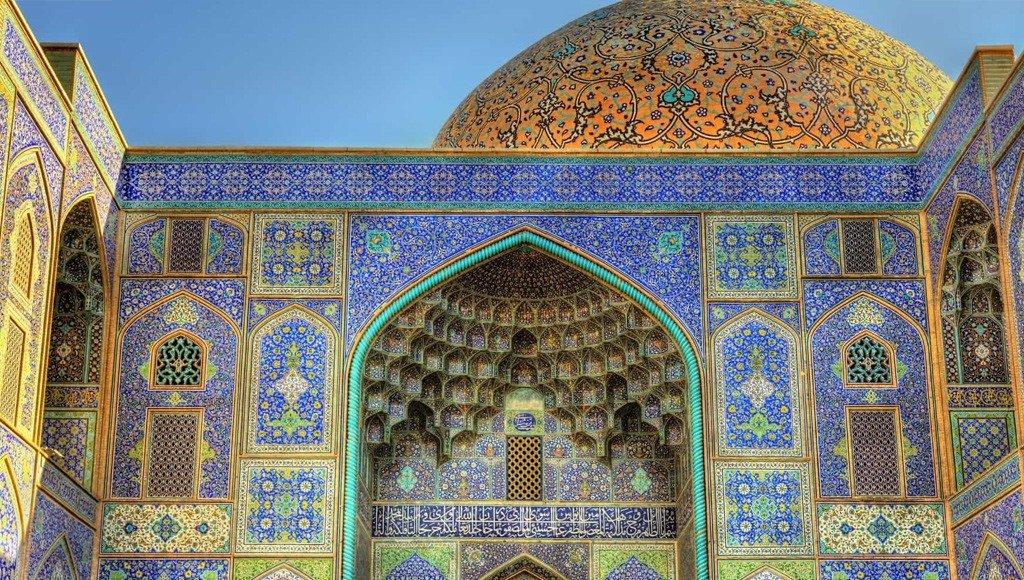




The Islamic civilization
Social Values
MUHAMMAD ENCOURAGED PEOPLE TO LOVE EACH OTHER:
Muhammad said:"I swear by God that you will not be true believers in Him unless you love each other. I will tell you something, if you do it you will love each other. Greet each other frequently and make it a common habit."
And he said:“No one will become a good believer unless he wishes for his brethren what he likes for himself.”
He also said:“Whoever helps a believer overcome a difficulty, God will help him overcome a difficulty on the Day of Judgment, and God will always help an individual as long as he/she is helping others.” 1"
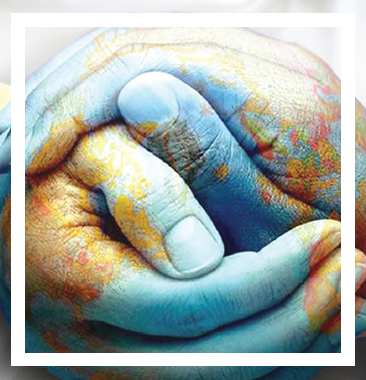
GREETING PEOPLE IS A MESSAGE OF PEACE:
Muhammad said:"Don’t ever underestimate any kind act, even if you meet others with a bright (smiling) face."
And he said:“The one who greets others first is closer to God than the others.”
On another occasion he said to someone who asked him about a good way to deal with people:“Offer people food and greet whom you know and whom you don’t know."

MUHAMMAD USED TO GREET PEOPLE WARMLY:
According to authentic narrations, Muhammad used to meet people with a bright face and when he shook hands with others, he never released his hand before the other person.
MUHAMMAD HAD A HIGH SENSE OF HUMOUR:
He was a very cheerful and optimistic person. People who dealt with him described him as a likable person and at the same time he was venerated and respected. On several occasions he joked with his friends and family members.
During Muhammad’s time, racing (as running) was a common activity to have fun. It was narrated that Muhammad was seen several times racing with his wife (Abu-Dawoud, 2/334, 2578. Ibn-Majeh, 3/149, 1979).

HIGH SENSE OF HUMOR WITH AN OLD WOMAN
It was narrated that an old woman asked him to pray for her so that she would enter God’s paradise. Muhammad replied in a non serious way: “There are no old women in the God’s Paradise.” She misunderstood what he said and got confused. But soon he elaborated: “You will be young when you enter the Paradise" (and all people will be).
HIGH SENSE OF HUMOUR WITH HIS FRIENDS:
One time, Muhammad saw a sore-eyed person named Suhayb (who was a Roman Muslim), looking miserable and was eating a ripe date. Muhammad wanted to joke with him in order to cheer him up so he said to him: “How come you eat the date and your left eye is sore?” Suhayb realised that Muhammad was joking with him so he replied: “Don’t worry I am eating it on the right side of my mouth (the side where the right eye was sound)." (Al-Hakim, 4/411, 8357. Ibn-Majeh 4/500, 3443)
Anas Bin Malek narrated that a man came to Muhammad and asked him to give him a ride on a camel. Muhammad said: "I will give you a ride on the child of the she camel". The man replied: "What am I going to do with the camel’s child?" Then Muhammad said: "Are not all camels the children of she camels?" 5
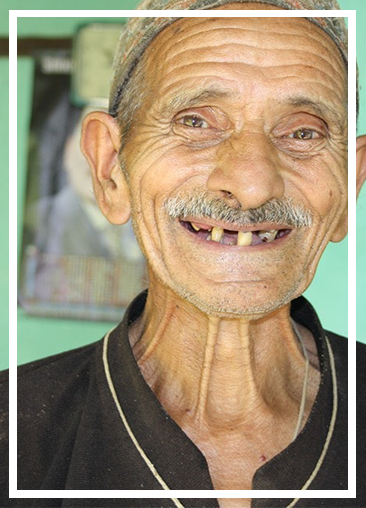
MUHAMMAD CARED FOR AND LOVED CHILDREN
Muhammad paid attention to children. He used to greet them and play with them. One time Muhammad saw a little boy who was sad because his little bird died. Although Muhammad was heading elsewhere, he spent some time with the little boy to please him and relieve his sadness.6(Sahih Al-Bukhari, 8/30, 6129. Muslim 6/176, 2150)
Muhammad used to ask parents to express their love to their children by kissing and hugging them and being fair with all their children.
Muhammad described a father who never kissed his child as lacking mercy in his heart.
MUHAMMAD LOVED HIS NEIGHBORS:
Muhammad had a Jewish neighbor who did not accept Islam and was not kind to him. When the Jewish neighbor became sick, Muhammad visited him at his home, which softened his neighbor’s heart. Also, Muhammad visited a Jewish boy at his home when he became sick because the boy had worked for some time as a helper or a servant for Muhammad. (Sahih Al-Bukhari, 2/94, 1356)

MUHAMMAD EMPHASIZED KINDNESS TO NEIGHBORS:
Muhammad told his companions that Archangel Gabriel frequently asked him to treat his neighbors well.7 Muhammad stated that whoever believes in God and the Day of Judgment should be kind to his / her neighbors. (Sahih Al-Bukhari, 8/10, 6015)
On one occasion he said to a companion called Abu-Tharr: ”If you cook soup, cook it with more water (i.e. increase its quantity) so that it becomes enough to give some to your neighbors.” (Sahih Muslim, 8/37, 2625)
MUHAMMAD ABOLISHED BAD SOCIAL MANNERS
He stated on several occasions that the people of good morals would be the closest to him on the Day of Judgment and the most beloved by him. Also he stated: Be
”Don’t hate each other and don’t envy each other and be brothers.” 8”A believer in God does not curse or swear or use bad language.” 9
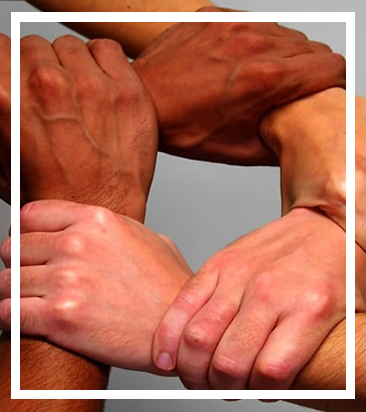
NO DERISION OR DEFAMATION:
Muhammad recited the following verses from the Quran: (considered by Muslims as God’s Words not Muhammad's own words).
“O believers, don’t disdain (or ridicule or deride) each other neither men deride men nor women deride women, the latter could be better than the former. “Don’t defame one another and don’t insult one another and whoever does so and does not repent to Allah he or she is indeed a wrongdoer.” The Quran, 49:11

NO ILL OPINION, EVIL SUSPICION, SPYING AND BACKBITING:
“O believers, avoid much suspicion, for some suspicion is a grave (serious) sin and don’t spy on one another, nor backbite against one another. Would any of you like to eat the flesh of his dead brother? You would hate it. So fear Allah (God), He is the Most Forgiving the Most Merciful.” The Quran, 49:12
DON’T PASS WRONG NEWS:
“O believers, if a transgressor brings you some news (that may require taking action then verify it carefully before you believe him or her and act upon it, so you don’t harm people in ignorance and then become regretful for what you have done.” The Quran, 49:6
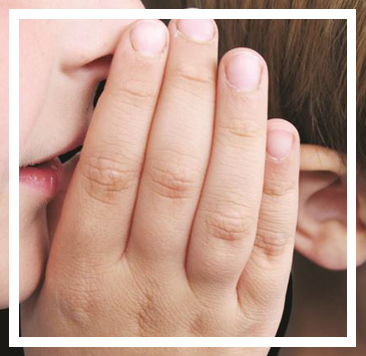
ADDING VALUE THROUGH ETIQUETTE
Muhammad cared for behavioral etiquette. He taught his companions that etiquette is part of his example and way of life (Sunnah). In addition, many verses in the Quran urge on tenderness and good manners. Muhammad indicated that Angels get upset by what upsets human beings (e.g. loud voices, bad smells, etc.) The following points summarize some of the Islamic behavioral etiquettes:
• Do not stay long when visiting a sick person, give him or her time to rest.
• One should smell good when he/she comes to the mosque.
• Those who ate garlic or onion should not come to the mosque, so as not to disturb the others by any unfavorable smell or act (e.g. burping).
• Be helpful and give space to others in congregation areas where finding a free space is difficult.
• Call others with the names and nicknames they like.
• Put your hand on your mouth when yawning and bless others when they sneeze.
• When talking to others, one should use the best and the most acceptable words to them so as they like it. The good word is a form of charity in Islam.
• Talk kindly to your parents and don’t shout at their faces, never say a bad word even “uff or fie” (the smallest negative word in Arabic).
• Children should always knock on the door and seek permission to enter, before going into their parents' room at certain times during the day.
• If you are serving water to others, you are the last one to drink (a preferred etiquette).
• If you are invited for a dinner or a banquet, eat from the closer pots to you and don’t annoy the others.
• Don’t breath in a cup of water while drinking from it.
Etiquette with Women Lower your gaze, don’t stare at women or at passing people. Muhammad was seen bending his knees for his wife Safiya to help her climb first on the camel by stepping on his thigh. (Narrated by Anas bin Malek – Bukhari - 9/20)
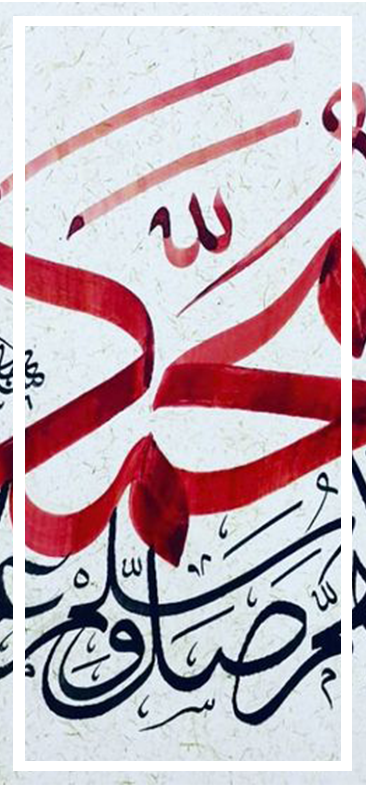
MUHAMMAD USED TO RESPECT OTHERS’ VIEWS
Whenever he gave instructions to his followers that were understood or perceived in two different ways, he used to accept both ways provided that both of them achieve the required goal in a lawful manner.
In the battle of "That Al-Salassel", the Muslim Commander Amr Bin Al-Aass was criticized for leading a prayer without performing ghusul and ablution (he was in a state of spiritual impurity). Muhammad listened to his justification and accepted it. Amr told Muhammad that it was cold that night and if he showered his body, he could fall sick and could not lead his group.(Al-Hakim, 1/177, 634. Abu-Dawoud 1/132, 334)
Anas Bin Malik said that he served Muhammad for ten years and he was never asked by Muhammad “why did you do this and why didn’t you do that”.
MUHAMMAD ENCOURAGED CONSULTANCY AND DEMOCRACY (SHURA):
Muhammad always consulted his companions and even his wife. He advised his followers to be objective and use rational thinking. He empowered them and involved them in the decision making process.
When the Meccan chiefs, along with other Arab tribes, planned to attack Madinah, a Persian Muslim put forward a proposal to dig a trench on the northern side of Madinah.
Although that was a foreign concept never applied before in Arabia and it was put forward by an ordinary person, Muhammad co
nsidered it seriously and it was approved by the majority of Muslims. They dug a trench 5.5 km long x 4.6 m wide.
On another occasion, (battle of Badr) a commoner (an ordinary person) told Muhammad: “O Prophet, if your choice to camp in this area is not inspired by a revelation from God, can I suggest we move to another area?"
The person put forward the reasons for his suggestion and after consultations, Muhammad welcomed the proposal likewise his companions; they moved to the other area.
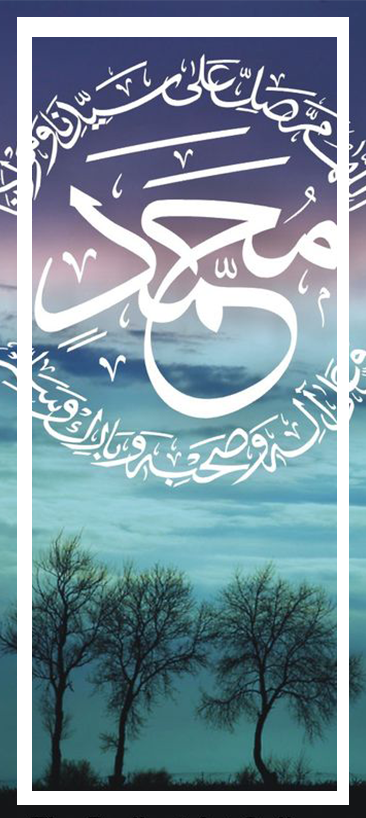
MRESPECT PEOPLE OF OTHER FAITHS:
Muhammad encouraged his companions to be friendly and transparent with people of other faiths while maintaining an assertive personality and clear understanding about their Islamic faith.
Muhammad demonstrated how highly he respected people regardless of their faith in several occasions. It is narrated that he stood up showing respect for a funeral carrying a coffin of a Jewish man that passed him and his companions. Muhammad answered a companion who wondered why Muhammad stood up for the carried body: “He is a human being” (regardless of his race, faith and social class).(Sahih Al-Bukhari, 2/85, 1312. Sahih Muslim, 3/58, 961)
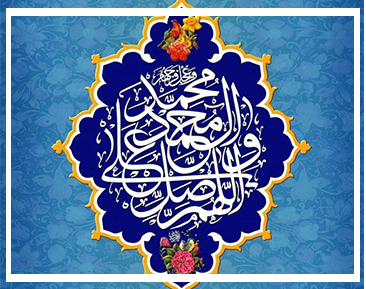
INTERFAITH DIALOGUE AND PEACEFUL COEXISTENCE WITH PEOPLE OF OTHER FAITHS
Interfaith dialogue can be defined as a two way communication or discussion between people of different religious faiths and traditions in order to reach positive outcomes such as moving from suspicion and confusion to understanding and awareness or from hostility to friendliness.
In the year 632 CE, Muhammad received and hosted at his mosque in the city of “Madinah” a Christian delegation who came from Najran (in Yemen) to learn about Islam and discuss the differences between Islam and Christianity.
Muhammad set guidelines and etiquettes for dialogue and debate with others, based on respect, wisdom, mutual understanding and kindness. The Quran states:
“Call (invite people) to the Way of your Lord with wisdom and with “good admonition”. And reason (debate) with them in the best manner. Your Lord Knows best who strayed from His Path and who received (able to receive) guidance.” The Quran, 16:125“And do not debate with the People of the Book (Jews and Christians) except with the best manner unless those of them who were aggressors (unjust or exceeded just limits). Say (to them): we believe in what has been revealed to us and what has been revealed to you; our God and your God is One, and to Him we are submitting.” The Quran, 29:46

OMAR MOSQUE AND THE CHURCH OF THE HOLY SEPULCHER, JERUSALEM
In the old city of Jerusalem, a great example of religious tolerance has been existing for many centuries. It started when the second Muslim ruler of the Islamic state Caliph Omar Bin Al-Khattab took over Jerusalem (638 CE) peacefully without shedding a drop of blood. Omar was invited by the Archbishop of Jerusalem, Sophronius, to pray in the Church of the Holy Sepulcher. The Church is also known as the Church of the Resurrection (Anastasis to Eastern Orthodox Christians).
It is the holiest Christian site in the world. It encompasses Calvary where the Christians believe Jesus was crucified, and the tomb (sepulcher) where he was buried. It has been an important pilgrimage destination since the 4th century, C.E.
In a remarkable gesture, Omar refused to pray in the Church, saying: "If I had prayed in the church, it would have been taken by Muslims as a mosque”.
Omar instead prayed a few yards outside the church. His act confirmed the peaceful coexistence between Islam and other religions. It confirmed freedom of worship for non Muslims under the Islamic state.
A mosque was built on that site where Omar prayed to commemorate this historical event (later, it was called Omar Mosque).
Caliph Omar entrusted the custody of the Church of the Holy Sepulcher, to 'Ubadah Ibn Al-Samit, a companion of prophet Muhammad who became the first Muslim judge of Jerusalem. Ubadah died in the year 658CE and was buried in the “Gate of Mercy” cemetery at the southern corner of the wall enclosing the Noble Sanctuary. The Sanctuary includes the Dome of the Rock and Aqsa Mosque.
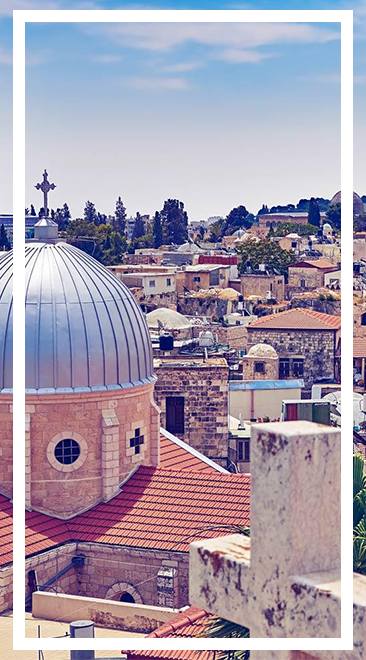
THE COVENANT OF OMAR
Omar granted the people of Jerusalem a covenant of peace and protection which came to be known the "Covenant of Omar". It has been mounted at the wall of the mosque for many centuries and even until now.
In the Name of (God) Allah, the Most Merciful, the Most Compassionate
This is an assurance of peace and protection given by the servant of Allah Omar to the people of Ilia' (Jerusalem). He gave them an assurance of protection for their lives, property, churches as well as the sick and healthy and all its religious community.
Their churches shall not be occupied, demolished nor taken away wholly or in part. They shall neither be coerced in their religion nor shall any of them be injured. The people of Ilia shall pay tax (Jizya) as inhabitants of cities do (and as Muslims do pay a similar tax “zakat”).
TRADE AND BUSINESS ETHICS
Muhammad encouraged trade and commerce based on noble Islamic values that denounce cheating, unethical dealings, deception, fraud, monopoly and exploitation.
Muhammad said: "Whoever cheats is not one amongst us” (i.e. among the righteous believers). Narrated by Muslim. Also he said: "God bestows His mercy on a person who is tolerant when he buys, tolerant when he sells and tolerant when he asks for his rights." (Applicable for males and females - Bukhari, 2076/16)

LYING OR BREAKING A PROMISE IS HYPOCRISY
Muhammad said: “Whoever has the following four (characteristics) will be a hypocrite and whoever has one of them will have one characteristic of hypocrisy until he gives it up:
1- Whenever he is entrusted, he betrays;
2- Whenever he speaks, he tells a lie;
3- Whenever he makes a covenant, he proves treacherous;
4- Whenever he quarrels, he behaves in a very imprudent, evil and insulting manner.”
Soon after he arrived in Madinah, Muhammad instructed his companions to buy a piece of land and dedicate it for free trade. People used to buy and sell in it without paying any fees or custom charges. They called it Manakha.
The following picture shows the wall surrounding the land that prophet Muhammad allocated for free trade 14 centuries ago.
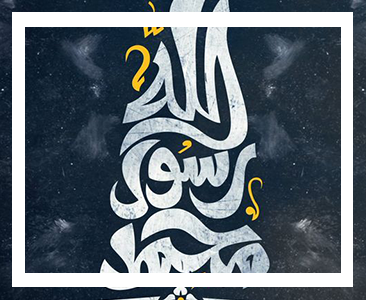
ENDNOTES
1 Riyad as-Salihin (183/2); Sahih al-Bukhari
2 Riyad as-Salihin (121/5)
3 Riyad as-Salihin (858/2)
4 Sahih al-Bukhari (11)
5 Abu Dawud, Ahmed und Tirmizi
6 Riyad as-Salihin (862/1); Sahih al-Bukhari (598/10)
7 Riyad as-Salihin (1591/1); Sahih al-Bukhari (6065)
8 Riyad as-Salihin (1734/1; 1738/3)
